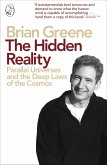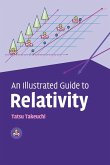Aimed at students and researchers entering the field, this pedagogical introduction to numerical relativity will also interest scientists seeking a broad survey of its challenges and achievements. The book contains 300 exercises, numerous illustrations (many in color), summary boxes, and applications to help readers master the subject.
Hinweis: Dieser Artikel kann nur an eine deutsche Lieferadresse ausgeliefert werden.
Hinweis: Dieser Artikel kann nur an eine deutsche Lieferadresse ausgeliefert werden.
'Numerical relativity has come of age in the last few years, and Baumgarte and Shapiro have produced the first textbook on the subject. And what a book this is! Sufficiently complete to be an encyclopedia, yet accessible enough to be a genuine learning manual, the book is exceedingly well written. It covers virtually all aspects of numerical relativity, from formalism to the most modern application, and it is replete with beautiful and helpful diagrams. The book will serve as a useful reference to the researcher, and a source of enlightenment to many a student.' Eric Poisson, University of Guelph








